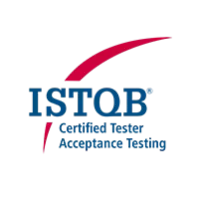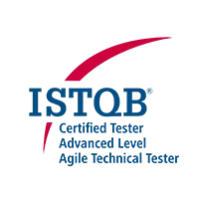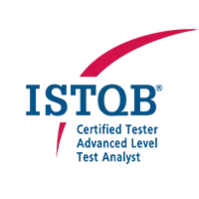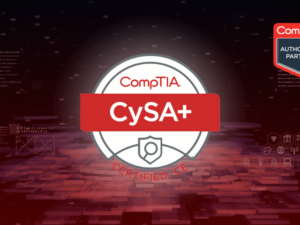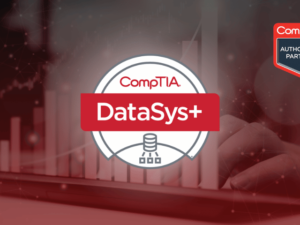CERTIFIED TESTER ADVANCED LEVEL TECHNICAL TEST ANALYST (CTAL-TTA)
- Description
- Reviews

CERTIFIED TESTER ADVANCED LEVEL TECHNICAL TEST ANALYST (CTAL-TTA)
COURSE DESCRIPTION
The ISTQB® Advanced Level Technical Test Analyst (CTAL-TTA) provides a thorough introduction to the technical testing skills which are fundamental in many organizations today. These skills include risk-based testing, white box testing, static and dynamic analysis, non-functional testing, and test automation.
TARGET AUDIENCE
The Advanced Level Technical Test Analyst certification is suitable for anyone who is involved in testing as well as anyone interested in further developing their software testing knowledge. This includes people performing activities such as test analysis, test consulting, and software development.
PREREQUISITE
To gain this certification, candidates must hold the Certified Tester Foundation Level certificate and have sufficient practical experience.
COURSE OBJECTIVES
A candidate who has achieved the Advanced Level Technical Test Analyst certification should be able to:
• Recognize and classify the typical risks associated with the performance, security, reliability, portability and maintainability of software systems
• Provide technical elements to the planning, design and execution of tests for mitigating performance, security, reliability, portability and maintainability risks
• Select and apply appropriate white-box test techniques to ensure that tests provide an adequate level of confidence, based on design coverage
• Effectively participate in reviews with developers and software architects applying knowledge of typical defects in the code and architecture
• Improve the quality characteristics of code and architecture by making use of different analysis techniques
• Outline the costs and benefits to be expected from introducing particular types of test automation
• Select appropriate toolsto automate technical testing tasks
• Understand the technical issues and concepts in applying test automation
COURSE OUTLINE
1. The Technical Test Analyst’s Tasksin Risk-Based Testing
1.1 Introduction
1.2 Risk-based Testing Tasks
1.2.1 Risk Identification
1.2.2 Risk Assessment
1.2.3 Risk Mitigation
2. White-Box Test Techniques
2.1 Introduction
2.2 Statement Testing
2.3 Decision Testing
2.4 Modified Condition/Decision Testing
2.5 Multiple Condition Testing
2.6 Basis Path Testing
2.7 API Testing
2.8 Selecting a White-Box Test Technique
2.8.1 Non-Safety-Related Systems
2.8.2 Safety-related systems
3. Static and Dynamic Analysis
3.1 Introduction
3.2 Static Analysis
3.2.1 Control Flow Analysis
3.2.2 Data Flow Analysis
3.2.3 Using Static Analysisfor Improving Maintainability
3.3 Dynamic Analysis
3.3.1 Overview
3.3.2 Detecting Memory Leaks
3.3.3 Detecting Wild Pointers
3.3.4 Analysis of Performance Efficiency
4. Quality Characteristics for Technical Testing
4.1 Introduction
4.2 General Planning Issues
4.2.1 Stakeholder Requirements
4.2.2 Test Environment Requirements
4.2.3 Required Tool Acquisition and Training
4.2.4 Organizational Considerations
4.2.5 Data Security and Data Protection
4.3 Security Testing
4.3.1 Reasons for Considering Security Testing
4.3.2 Security Test Planning
4.3.3 Security Test Specification
4.4 Reliability Testing
4.4.1 Introduction
4.4.2 Testing for Maturity
4.4.3 Testing for Availability
4.4.4 Testing for Fault Tolerance
4.4.5 Testing for Recoverability
4.4.6 Reliability Test Planning
4.4.7 Reliability Test Specification
4.5 Performance Testing
4.5.1 Introduction
4.5.2 Testing for Time Behavior
4.5.3 Testing for Resource Utilization
4.5.4 Testing for Capacity
4.5.5 Common Aspects of Performance Testing
4.5.6 Types of Performance Testing
4.5.7 Performance Test Planning
4.5.8 Performance Test Specification
4.6 Maintainability Testing
4.6.1 Static and Dynamic Maintainability Testing
4.6.2 Maintainability Sub-characteristics
4.7 Portability Testing
4.7.1 Introduction
4.7.2 Installability Testing
4.7.3 Adaptability Testing
4.7.4 Replaceability Testing
4.8 Compatibility Testing
4.8.1 Introduction
4.8.2 Coexistence Testing
4.9 Operational Profiles
5. Reviews
5.1 Technical Test Analyst Tasks in Reviews
5.2 Using Checklists in Reviews
5.2.1 Architectural Reviews
5.2.2 Code Reviews
6. Test Tools and Automation
6.1 Defining the Test Automation Project
6.1.1 Selecting the Automation Approach
6.1.2 Modeling Business Processes for Automation
6.2 Specific Test Tools
6.2.1 Fault Seeding Tools
6.2.2 Fault Injection Tools
6.2.3 Performance Testing Tools
6.2.4 Toolsfor Testing Websites
6.2.5 Toolsto Support Model-Based Testing
6.2.6 Component Testing and Build Tools
6.2.7 Toolsto Support Mobile Application Testing
Please contact us for schedules and for booking a private class.
Request a Quote
Popular Courses
Archive
Working hours
| Monday | 9:00 am - 6.00 pm |
| Tuesday | 9:00 am - 6.00 pm |
| Wednesday | 9:00 am - 6.00 pm |
| Thursday | 9:00 am - 6.00 pm |
| Friday | 9:00 am - 6.00 pm |
| Saturday | Closed |
| Sunday | Closed |

